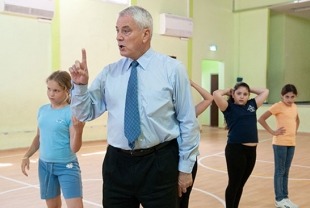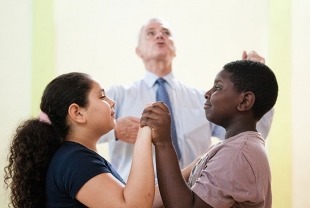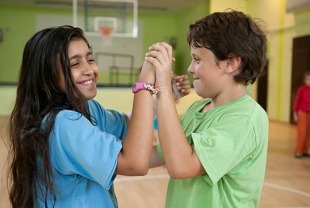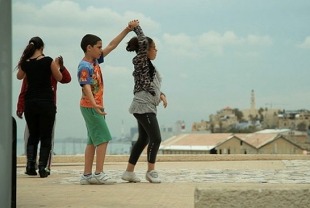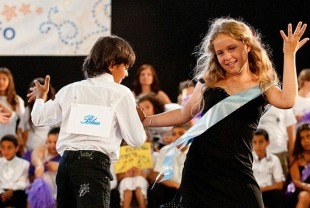Pierre Dulaine, a teacher and former four-time champion in ballroom dancing, was born in Jaffa to an Irish father and a Palestinian mother. The family left Israel in 1948 when he was four years old and moved to the United States. Dulaine is saddened by the hatred and misunderstanding that continues to make Israeli and Palestinian children enemies rather than friends. He believes that dancing is a universal language that can bring youth together.
Dulaine arrives in Jaffa with high hopes of teaching dancing and modeling respect to Jewish and Israeli youth in a 10-week course in dancing (mostly Latin dances). He is not happy as he tries to find students from different schools to participate in the program. The idea is to have the Israeli Jewish boys and girls dance together at their school, while the Israeli Palestinian boys and girls dance together at their school. Then after a few weeks, they will combine the classes with a Jewish student dancing with a Palestinian student.
Immediately, there are problems. Boys and girls in these cultures are not supposed to touch each other, and some of the kids have never even spoken to someone from another school. Some of the Jewish boys refuse to look in the eyes of the Palestinian girls and immediately flee the program.
This up-tempo and enlightening documentary directed by Hilla Medalia shows how the kids perk up when Yvonne Marceau, Pierre's dancing partner from New York, arrives in Jaffa to encourage them. The director follows the impact of Dulaine's work on three students: Noor Gabai, a Palestinian outsider who undergoes a radical transformation once she lets herself go and expresses her love of movement; Alaa Bubali, a quiet Palestinian boy whose large family lives in a poor section and Lois Dana, an open-minded and outgoing Jewish girl who becomes Alaa's partner and befriends Noor as she discovers the joy of dancing.
While some may complain that Dancing In Jaffa offers a too simplistic and candy-coated portrait of reconciliation between Jewish and Palestinian kids, it is our view that any program that can begin to eradicate segregation, racial prejudice, and blind hatred deserves our encouragement and support. And the spiritual key to this transformation is respect — which in our Alphabet of Spiritual Literacy comes under Reverence.
